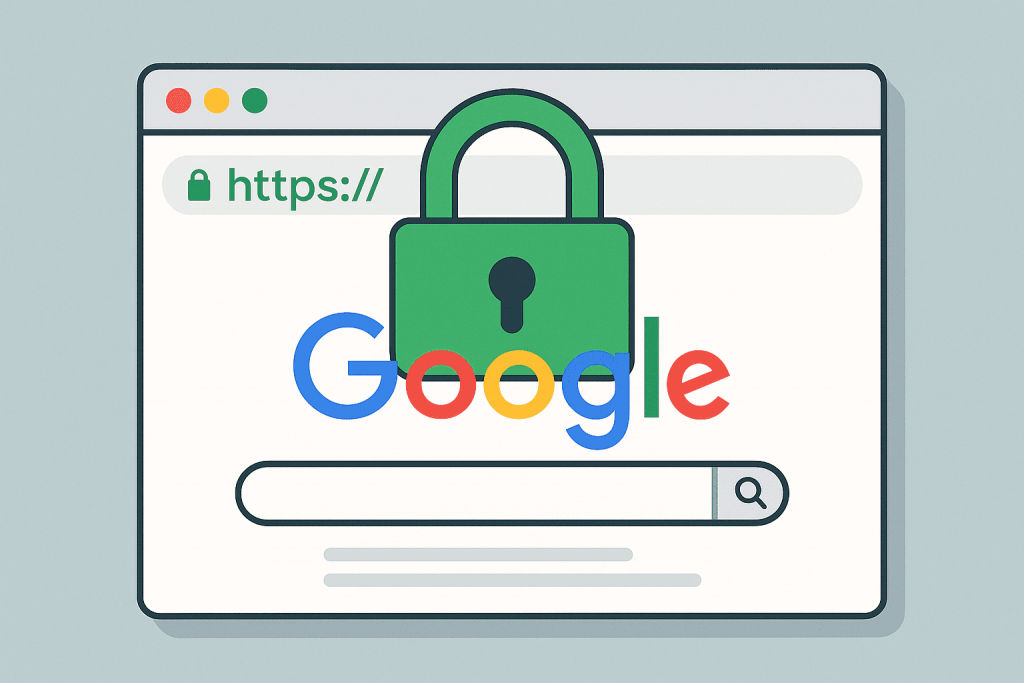
The Internet today is not just a network of websites — it’s an entire ecosystem where security, trust, and user convenience have become key indicators of quality. One of the most visible elements of this security is HTTPS — a protocol that ensures secure data exchange between the user and the website. If in the past HTTPS was associated exclusively with banking services or online stores, now it has become the standard for any modern website. Google has long established that the presence of an SSL certificate — which enables HTTPS — affects not only user safety but also a website’s position in search results.
Security as the Foundation of Trust
When a user visits a website with a “lock” icon in the browser’s address bar, they immediately receive a signal that the resource is safe. The HTTPS protocol encrypts all data transmitted between the visitor and the server — from entered passwords to credit card numbers. Even if the information is intercepted, it remains encrypted and unreadable. This builds a foundation of trust between the user and the website since people intuitively sense the difference between a secure and a suspicious page. A plain HTTP connection today is seen as a sign of outdated or even risky websites, especially as browsers now warn users about unsafe connections. Thus, HTTPS is not merely a technical parameter but a psychological factor that influences user behavior.
Impact on SEO and Rankings
Google officially confirmed back in 2014 that HTTPS is one of the ranking factors. While it is not decisive, it’s part of the broader system for assessing site quality. For search engines, a secure site means a better user experience — and therefore, greater trust. As a result, websites using HTTPS gain a small but steady advantage in search rankings over those that still rely on HTTP. Moreover, HTTPS is closely linked to page load speed: modern protocol versions such as HTTP/2 are only available through encrypted connections, which means optimized data exchange and reduced latency when loading websites. Users, therefore, enjoy a faster and safer experience — another factor that positively influences SEO performance.
User Perception and Conversions
From a marketing perspective, HTTPS directly affects conversions. A user who sees the warning “Connection is not secure” is unlikely to submit personal data or make a purchase. Even if the site functions perfectly, the absence of an SSL certificate raises doubts. Meanwhile, HTTPS not only removes these psychological barriers but also strengthens brand credibility. For online stores, banking services, marketplaces, and even corporate websites, this is not just an image issue — it’s a matter of real profit. Trust is the currency of the modern Internet, and HTTPS has become its primary confirmation.
Trends and the Future of Online Security
The global transition to HTTPS is almost complete: according to Google, the majority of pages opened in Chrome already use secure connections. However, progress continues. Modern SSL/TLS certificates are constantly improving, adopting new encryption algorithms and enhancing protection against phishing and traffic tampering. Free certificates, such as Let’s Encrypt, have made HTTPS accessible even to small websites and blogs. In addition, Google continues to encourage developers to adopt new security standards like HSTS (HTTP Strict Transport Security), which force browsers to always use secure connections.
No Trust Without HTTPS
Today, HTTPS is not just a technical setting — it’s an integral part of any online project’s reputation. It determines whether users will trust you, whether Google will consider your site reliable, and whether you’ll rank higher in search results. Without a secure connection, a website looks as suspicious as a shop without a lock on its door. If you want your business to grow online, start with this essential step — installing an SSL certificate. It’s a simple yet strategically important move that boosts your website’s security, credibility, and effectiveness.

Leave a Reply